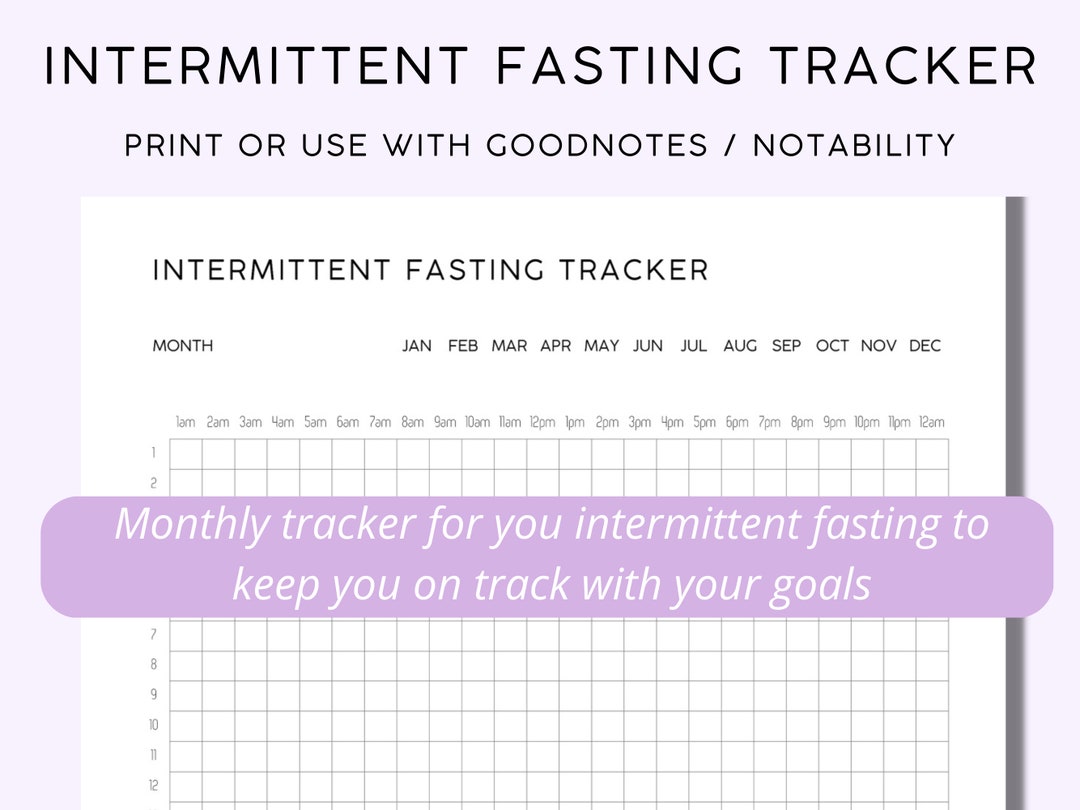What Is Intermittent Fasting and Will It Help You Lose Weight?

How about a free, flexible, and simple way to gain control of your weight (and also improve many other health issues) without counting calories, obsessing about what to eat, or restricting the foods that you can eat?
Intermittent fasting, also known as time-restricted eating can do all of that. Still, the best thing about it is that it doesn't require you to do more, buy more stuff or spend your precious time doing calorie counting.
If anything, it encourages you to do less, it simplifies your life while freeing up time to do things you love.
❓what is intermittent fasting?
Intermittent fasting or time-restricted eating is a dietary approach that focuses on when you eat rather than what you eat.
And it is not a new thing. Your hunter-gatherer ancestors would have done a form of intermittent fasting as the resources were scarce and they had to go long periods without food. Since this is how our bodies evolved to function, it makes sense to adopt a similar approach in our day-to-day life today.

Unlike traditional dieting which limits calories or certain types of food, intermittent fasting has nothing to do with calories or specific foods; you simply choose not to eat for certain periods of time.
During periods of fasting, the body enters into a state of ketosis, where it burns fat as energy instead of carbohydrates which is beneficial in many ways for your overall health.
It is important to say that there is no one way to do intermittent fasting but all the methods are similar in the sense that they restrict the time period in which you consume food.
For example, someone following a 16:8 intermittent fasting plan may only eat within an 8-hour window each day and fast for the remaining 16 hours.
And you can make it a 14:10 fast or opt for alternate-day fasting. You can fast just a couple of days per week or you can go all in and try the OMAD - one meal a day - method (although it is always better to ease into fasting slowly and go with your body and what works for you).
The idea behind all types of intermittent fasting is that it is easier for people to restrict their food intake during an uninterrupted period of time rather than restrict the types of food they eat or count calories for weeks and months while following traditional diets.
And it turns out, that losing weight is not the only benefit of intermittent fasting.
👩⚕️health benefits of intermittent fasting
Intermittent fasting has been shown to have many positive effects on the body, including reduced blood pressure, improved blood sugar control, and decreased inflammation.
There is also evidence that intermittent fasting can improve cognitive function, reduce stress levels, and even lessen the risk of some types of cancer.
Additionally, studies suggest that intermittent fasting may help protect against age-related diseases such as Alzheimer's disease and cardiovascular disease.
Intermittent fasting can also reduce the risk of diabetes by improving insulin sensitivity and promoting weight loss.
Another amazing benefit of intermittent fasting is that it can increase autophagy levels in the body.
Autophagy helps reduce inflammation, fight off infections and viruses, and slow down aging. By practicing intermittent fasting you get healthier even on a cellular level.
⚖️intermittent fasting for weight loss
Of course, intermittent fasting is an increasingly popular way to lose weight, as it allows individuals to control their calorie intake while still being able to eat a variety of foods.
It works by prolonging the period when your body has burned through the calories consumed during your last meal and begins burning fat instead of carbohydrates for fuel.
It also increases insulin sensitivity, which allows the body to absorb glucose from the bloodstream more efficiently.
Intermittent fasting doesn't involve calorie restriction, but you still end up consuming fewer calories due to the restrictions of your feeding window.
As intermittent fasting requires no counting calories or monitoring food intake it makes it much easier for many people to adhere to it even in the long run.
💡ted talks about intermittent fasting
Here are some TED talks on the topic that dive into some of the science behind intermittent fasting 👇
Here Mark Mattson is talking about the general benefits of intermittent fasting and specifically how it influences brain power 👇
Researcher Sachin Panda talks about the research behind circadian rhythms and how intermittent fasting integrates with them 👇
Dr Cynthia Thurlow talks about how she helps her women patients restore their health with intermittent fasting 👇
🔷intermittent fasting methods
⏳time-restricted eating
Time-restricted eating (the 14:10, 15:9, 16:8, and 17:9 methods) involves limiting meals, snacks, and calorie intake to certain hours of the day.
With these methods, you will consume all of your daily calories within a 10, 9, 8, or 7-hour window, and fast for the rest of the day.
The goal here is to create a regular eating pattern where you are able to consume all of your required nutrients in fewer hours of the day, giving your body the time to digest, rest, and repair the cells damaged throughout the day.
This leads to health benefits such as weight loss, increased insulin sensitivity, improved mental clarity and focus, and reduced inflammation.
If you think that 12-16 hours without eating is too long, consider that most of that time you will be spending asleep. And you can schedule the rest of the fasting hours around your timetable.
For example, a 16-hour fast can stretch from 5 pm to 9 am, where you stop eating at 5 pm and your next meal is at 9 am the next morning. Or, if you are a morning person, the same fast could stretch from 2 pm to 6 am.
Intermittent fasting is very flexible - it all depends on your schedule and your preferences.
During the fasting window, you should avoid all foods (calorie-free drinks like water, sugar-free coffee, and tea are allowed).
Once the 8-hour window is reached you should strive to eat wholesome meals based on your nutritional needs, full of fruits and vegetables, lean proteins, complex carbohydrates, healthy fats, vitamins, and minerals.
🤚Eat Stop Eat Method
The Eat Stop Eat method of intermittent fasting is a type of intermittent fasting that involves fasting for up to 24 hours, once or twice a week.
This method is not recommended for beginners who should stick to a shorter fasting period as they first try intermittent fasting.
During Eat Stop Eat fasting periods, you abstain from eating any solid foods but you can drink calorie-free beverages like water or herbal tea and in your eating window you maintain your regular healthy diet of nutritious meals.
The length of the fasts is up to the individual but it is recommended that they stay under 24 hours.
The longer fasting periods allow your body to focus on autophagy, cellular healing, and rejuvenation.
🥦OMAD (One Meal a Day)
The OMAD (One Meal a Day) approach to intermittent fasting involves eating one large meal per day, usually within a set time frame of one hour or less.
This approach is gaining popularity due to its simplicity and effectiveness in aiding weight loss.
Studies have found that this type of fasting can help reduce body fat, improve blood sugar regulation, increase metabolic rate, and lead to improved health overall.
Proponents of this type of fasting believe that it can help to reset appetite hormones and boost mental clarity.
However, it is important to note that this approach may not be suitable for everyone especially beginners.
⭐️i want to try intermittent fasting - how do I start?
Now that you know the basics of intermittent fasting, it's time to get started.
If you don't have any health concerns, you'll want to slowly transition into a fasting pattern.
The best place to start is a 12-hour fast. It is relatively easy to do and it will give you a general impression of intermittent fasting. You can spend as long or as short as you need doing 12-hour fasts.
The goal is to accustom yourself to this time-restricted eating pattern and build a habit of limiting your food intake to specific hours of the day.
After you are fully comfortable with 12-hour fasts, you can start gradually increasing the length of your fasts.
The recommended rate is one hour a week but you can go as fast or as slow as you are comfortable with.
Tips for successful intermittent fasting
- Give yourself time and do not rush it. Start restricting your eating times slowly. You will still get the benefits and the main benefit will be that you have stuck with intermittent fasting rather than abandoned it after trying to do too much at once.
- Be gentle with yourself. We are humans so we all make mistakes at times. Be flexible, be understanding. If something went wrong, it's not the end of the world (or your fasting). Start again tomorrow.
- If you can't do a 16-hour fast today, do a 12-hour one instead. Be flexible but try to do your best every day.
- Eat as healthily as possible during your feeding window. This will ensure you are getting the nutrients you need to stay healthy and over time will reduce your cravings during your fasting window.
- Stay very well hydrated while fasting. If you start to develop a headache, drink some water with a pinch of Himalayan salt in it. This will supplement your electrolytes.
- Use a fasting tracker. It can be an app, a journal, or anything else. From experience, a simple printable like the one below works really well. It is motivating, it helps you keep track of your fasting/eating windows, and it is satisfying to mark your progress on the tracker. It is evidence of doing.
Get this tracker on Etsy to help you stay on track with your fast.


🥙what food to eat during intermittent fasting
The best food to eat while intermittent fasting is the same healthy food you should eat whether you are fasting or not.
This includes nutrient-dense foods that are high in protein, healthy fats, and fiber. Examples include eggs, nuts, leafy greens, fish, lean meats, avocados, and other low-carb vegetables.
You will still benefit from intermittent fasting even if you eat fast food or "not the best for you" foods in your feeding window.
But having a healthy diet in the hours that you are eating will increase the benefits that you get from fasting and also will make the whole process easier since you won't have to deal with massive blood sugar spikes and crashes.
You should aim for a balance of lean protein, vegetables, fruits, smart carbs, and healthy fats.

Legumes and beans are excellent choices as they are protein-rich and pack a powerful nutritional punch. Nuts, seeds, and avocados are great sources of healthy fats. High-fiber foods, such as fruits and vegetables, are great sources of vitamins and micronutrients.
It is important to eat enough protein to give the body the building block to repair itself while fasting. So high-protein foods such as meat, fish, tofu, or nuts should be included in every meal.
To make sure you have a healthy nutritious meal every time, you can plan your meals in advance so that when your eating window starts, you don't just grab anything because you are too hungry.
By following these tips and preparing for intermittent fasting properly, you can make sure that you are setting yourself up for success.
🥛what can you drink when intermittent fasting
During the periods of fasting, it is important to maintain proper hydration by drinking plenty of water.
Other options include black coffee (no milk or sugar), black or herbal tea (no milk or sugar), and sparkling water.
It is recommended to avoid zero-calorie sweeteners, zero-calorie sodas as well as alcoholic beverages during intermittent fasting.
👩🍳mct oil while intermittent fasting
This is a very controversial topic in the fasting world.
Some people like to add a tablespoon of MCT oil or organic butter from grass-fed cows (or both) to their morning coffee while fasting to help to reduce hunger and cravings in the fasting window.
Even prominent biohackers like Dave Asprey recommend and do it.
But will MCT oil break you fast?
MCT oil doesn't contain any carbohydrates or protein, just fat. And while it definitely contains calories, and theoretically it will break the fast, MCT oil is a very fast-absorbing oil and probably will not trigger much of an insulin response.
So it is totally up to you which side to stick with - MCT oil while fasting or not.
The proponents of MCT oil while fasting say that it helps with energy and cravings while the opponents say that it will break the fast.
Either way, it doesn't hurt to try and see for yourself. Add the MCT oil to your morning coffee or tea and mix well preferably with a blender. Start with a teaspoon of oil and gradually increase it to a tablespoon. Enjoy!

🤕headaches while intermittent fasting
Occasionally you can get headaches while intermittent fasting. While most people think that this is due to low blood sugar levels, this is rarely the case if you fast just 12-16 hours a day.
Headaches can be caused by dehydration due to inadequate water intake during the fasting period. This is why it's important to stay hydrated and make sure to drink plenty of water throughout the day.
Also, adding a pinch of Himalayan salt to the water help restore the electrolyte balance in the body which is the cause of most headaches while on short fasts.
Headaches can also occur if you try to do too much too soon and the body gets into a stressed state. First of all, build up your fasts slowly and practice relaxation techniques such as yoga or deep breathing exercises.
⛹️♀️exercising during intermittent fasting
Intermittent fasting combined with regular exercise can provide better results than either could on their own.
Exercising during intermittent fasting can bring a variety of health benefits, such as improved physical endurance, increased fat-burning potential, and mental clarity.
Exercise helps further increase the metabolic rate so that greater amounts of fat are burned during each fasted period, even when at rest.
It is also believed that exercising in a fasted state can improve insulin sensitivity which helps control hunger cravings.
It is important to hydrate frequently during a workout while fasting which reduces fatigue and makes it easier to complete a session.
Try to time your training session for just before you are ready to break the fast and have a healthy meal with plenty of protein and vegetables after.
👇frequently asked questions about intermittent fasting👇
🤔Will intermittent fasting work?
The answer is yes, but it requires commitment and dedication for intermittent fasting to truly be effective. If you are a complete beginner start slowly with 12-hour fasts and build from there. As with everything else, the key here is consistency.
🤔Are 12 hours of fasting enough to start feeling the benefits of intermittent fasting?
12-hour fasts are an excellent starting point if you are new to intermittent fasting or fasting in general. This is because these fasts are fairly easy to do and they will make a difference in how you feel straight away. You will definitely be experiencing the effects of intermittent fasting, especially if you were eating with no time restrictions before.
A 12-hour fast can be a 7 pm to 7 am fast or a 6 pm to 6 am fast, or any other 12-hour period depending on your schedule.
When you are just starting to explore intermittent fasting for yourself, begin with 12-hour fasts for a period of a week, 2 weeks, or even longer to get used to the idea and the feelings that you might experience while fasting.
After that, try increasing your fasts but take it slowly extending the fasting period by an hour at a time and taking your time to get used to the longer fasts.
🤔Is there such a thing as 10-hour intermittent fasting?
If you fast only for 10 hours (and your eating window is 14 hours) it is not really considered a fast since this is very close to how we normally eat without time restricting the meals in any way.
A 12-hour fast would be a better way (also easy and effective) to start intermittent fasting (see above).
Having said that, if you are really struggling and if a 10-hour fast would be an improvement from your previous eating patterns, by all means, go for it and after you are comfortable with that, increase the fasting time gradually.
🤔Can I have coffee during intermittent fasting?
Yes, you can have black coffee (no milk or sugar) and that will not break your fast.
Some people recommend adding a little bit of MCT oil, butter, or coconut oil to your coffee to make you feel less hungry (this is the theory behind Bulletproof Coffee) but this is not a requirement and sometimes it is easier to just keep it simple.
🤔Can we drink tea during intermittent fasting?
Yes, both herbal and black teas are allowed while fasting. But remember - no milk, sugar, or any artificial sweeteners.

🤔Does almond milk break intermittent fasting?
The answer to this question is yes, almond milk can break an intermittent fast.
Almond milk contains calories and nutrients that can cause the body to enter a fed state, which interrupts the fasting period.
Additionally, many brands of almond milk contain added sugars, which further disrupts the fasting process.
🤔Does erythritol break intermittent fasting?
Erythritol is an artificial sweetener that contains few calories and has a low glycemic index, meaning it does not cause spikes in blood sugar.
But research suggests that sugar alcohols (like erythritol) can impact the body's ability to enter into a fasted state for extended periods of time, which could reduce the benefits associated with intermittent fasting.
As such, it is recommended to avoid any artificial sweeteners while fasting.
🤔Can I chew gum while intermittent fasting?
It is not recommended to chew gum while fasting.
Sugar-free gums contain artificial sweeteners that may deliver enough calories to break your fast.
Also, keep in mind that chewing gum does increase salivation which may lead to hunger, disrupting your ability to stay in a fasted state.
It's better to avoid chewing gum altogether or save it until after you've broken your fast.
🤔Are electrolytes helpful while intermittent fasting?
The answer is yes. Taking electrolytes while intermittent fasting can help ensure that your body is receiving enough of the key minerals to support healthy functioning, especially during prolonged times of fasting.
If you develop a headache while fasting this is often due to low electrolyte levels. Just drinking a glass of water with a pinch of Himalayan salt can help with this issue.
While some people may not need electrolyte supplements, if you are engaging in regular and extended periods of fasting then it may be helpful to consider adding electrolytes into your diet.
Sources:
- Clinical application of intermittent fasting for weight loss: progress and future directions https://www.semanticscholar.org/paper/30167b63e50a0a4555ba71ca011cc9d535d9a0d2 Authors: K. Varady, Sofia Cienfuegos, M. Ezpeleta, Kelsey Gabel Year: 2022
- Intermittent Fasting and Metabolic Health https://www.semanticscholar.org/paper/cf318a8fb872f4536a9328ade2a5f0b655a13b2e Authors: I. Vasim, C. Majeed, M. DeBoer Year: 2022
- Intermittent fasting enhances long-term memory consolidation, adult hippocampal neurogenesis, and expression of longevity gene Klotho https://www.semanticscholar.org/paper/6047a1c972d83daf7978e39801056f7b0627807c Authors: G. Dias, T. Murphy, D. Stangl, S. Ahmet, B. Morisse, Alina Nix, Lindsey Aimone, J. Aimone, M. Kuro-o, F. Gage, S. Thuret Year: 2021
- Intermittent fasting in the prevention and treatment of cancer https://www.semanticscholar.org/paper/e5ff7dae0041642d251ba34806a5c43eec1a1f04 Authors: K. Clifton, Cynthia X Ma, L. Fontana, L. Peterson Year: 2021
- Intermittent Fasting: From Calories to Time Restriction https://www.semanticscholar.org/paper/5caefad5484f11e6e0423c801e9441204fb0d9a2 Authors: E. Duregon, Laura C D Pomatto-Watson, M. Bernier, N. Price, R. de Cabo Year: 2021
- Restructuring the Gut Microbiota by Intermittent Fasting Lowers Blood Pressure https://www.semanticscholar.org/paper/49adb49e59b98c25430cd212104daf79ffed6cd4 Authors: Huanan Shi, Bojun Zhang, Taylor Abo-Hamzy, J. Nelson, Chandrasekhar R Ambati, J. Petrosino, R. Bryan, David J. Durgan Year: 2021



